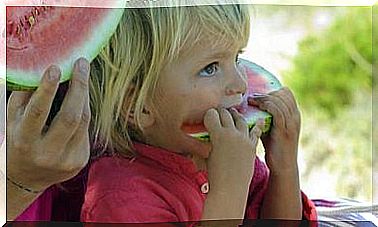How To Offer Help To Those In Need
The skill required by the art of helping can be learned and exercised. We are all capable of providing constructive and fruitful support to other human beings if we propose it from sincerity and tolerance.

Since arriving in the world, the newborn experiences how necessary the care and attention of other human beings is, as well as the physical and emotional protection that they provide. Although in time you will gain independence and be able to help yourself, getting help is one of the first lessons life has to offer.
In the same way, it will not take long for him to learn that he too has the capacity to help others, which will promote his development, his maturity and, above all, his sense of competence. You will also realize that, however autonomous you may be, your well-being will continue to depend on your peers, the dedication and support that you receive from the environment. You will know that there are times to offer and give, and there are times to ask and accept.
In everyday life, giving and receiving help makes it possible for people to move forward and their situations to improve.
Listening to a friend who has a problem, encouraging the couple when they are sad, teaching a child something they do not know … these are common pictures in which someone accuses a need and another spontaneously covers it. Both offering and requesting collaboration are genuine wishes, but one is not always aware of the action required by both parties; the same one that will turn the aid into an authentic and positive process.
The benefits of being altruistic
Although it is usually helped for altruistic reasons, it is difficult not to perceive some benefit in return, even if this was not the primary objective.
- Helping others makes us feel necessary, and rewards us with the pleasure and pride of knowing ourselves useful to our fellow men.
- It helps to promote autonomy and a sense of one’s own competence, to have a better concept of oneself and to raise self-esteem.
- Focusing on the problems of others helps to relativize your own and value them in their proper measure.
- It is an extra source of satisfaction, acts as a buffer against failures, breakdowns or fears in other facets, and maintains high levels of enthusiasm and hope.
Helping does not mean controlling
The aid relationships are based on an inequality: one part presents a void and the other a surplus that should not be fed. Helping someone in need is a valuable reward for your self-esteem, but also a trap that can lead you to believe that you have power over the other person and you know better than they what is good for you.
“Whoever helps does not push with their own hands or directs in an omnipotent way, but offers tools and shows the possibility of a way out, accepting that there can be many other ways of acting”, comments clinical psychologist María Regás.
In this sense, it is essential to know that helping also implies giving space to others to find a way to take care of themselves, respecting their decisions. And it is that the impulse to alleviate the suffering of others sometimes leads to wanting to give more than what is strictly required, which can become an obstacle to improvement and change, threatening the recipient’s self-esteem and favoring inequality. For the psychologist Gisela Carres: “It is better to help when they request it. Offering help to those who do not ask for it can be done once as a sign of education, but if they refuse it is preferable not to insist. A poorly received help can hinder rather than favor the process”.
Certainly, despite having the best intentions, it is necessary to measure the way in which the donation is going to be made, as well as its suitability. One of its main purposes is that it is adequate, for which it will be essential not to do for another what it is capable of doing and, instead, provide useful resources. Empathy – the ability to understand the feelings of others – is another fundamental ingredient in the exchange; Try not to confuse what you need yourself and what that person really needs.
How to offer help to those who need it
It is good that the person who gets help perceives it as a show of support, interest and concern, as well as feeling valued. Otherwise, they are likely to reject it. This phenomenon often occurs in relationships between parents and children or in the couple. Although the act of offering help is carried out as a way of being useful and pleasing to others, sometimes the answer obtained is the opposite and, far from providing benefits, inequality increases, since it is understood as a restriction of freedoms, such as a usurpation of power, or it makes the recipient believe that he or she is incapable and dependent.
“It is advisable to prioritize and encourage the autonomy of the recipient, only then will he stop seeking assistance and will have greater self-confidence and desire to improve,” says Maria Regás.
This does not mean that help is never appreciated in itself, but it is necessary to know the correct way to carry it out, without making the mistake of relegating those in need to a more dependent condition. That is why punctual and stimulating collaboration is preferable to regular or routine. We must not forget that those who need help must face the problem twice: to what makes them suffer is added the effort to admit to others that they cannot solve it on their own.
In general, people who are willing to be helped respond favorably to those who are offered. But sometimes it is not like that. Sometimes because they believe that asking for help is synonymous with lack of competence or weakness, and sometimes because they are ashamed of what is happening to them or fear that they will not be understood. “Out of pride, fear or shame, many do not dare to ask for help. But, above all, because they are not prepared for change,” adds Maria Regás. “Expressing a problem implies being honest with oneself and facing painful aspects. It is the first great step towards overcoming,” he concludes.
It is clear that opening up to others and expressing your own needs explicitly is not always easy to do, but it is as valuable and indispensable as knowing how to help those who have difficulties. On the one hand, it means gathering the necessary courage to begin to face what worries (such as gaining autonomy and security to face other upcoming challenges) and, on the other, allowing others to feel useful and necessary. In addition, letting yourself be helped also has its emotional reward: that of feeling valued and loved by the environment.
7 keys to help effectively
- Ask: do you need help? Sometimes, the desperation to see someone we care suffer can lead to pounce on that person. We do it in order to save him more pain, but in practice what we are doing is preventing him from expressing himself or even stifling him even more. Help is not imposed: it is provided. Others are free to accept it when they want or are ready.
- Find the right time and place, reserving a time exclusively for the other person. The simple fact of being with her and transmitting our dedication one hundred percent will already do a lot of good, as it will raise her self-esteem.
- Establish a trust. It is essential for communication to be sincere and cooperation to bear fruit. This is achieved by guaranteeing the confidentiality of the aid: letting the other know that we are not going to spread what they tell us and we are not going to fail them.
- Maintain a listening attitude, that is, refrain from starting with a monologue. Let the other explain calmly and without pressure. It is necessary that our body language accompanies: looking at the eyes and maintaining a relaxed posture will reinforce the support.
- Respect feelings. You have to differentiate your own values, beliefs and feelings from those of the other person. It takes a lot of objectivity, tolerance and banishing any prejudice or assumption. Empathy then arises on its own.
- Give advice only if asked. It should be a free advice, never imperative, nor with the intention of managing the other. This is achieved by issuing the recommendations from yourself.
- Allow independence. After the help is finished, the other person should have the opportunity to function freely on their own.
Generosity must be voluntary
The predisposition is also key for who offers the help. One must consider the true motivation behind their impulse in order to maintain their purpose over time and respond to the commitment that it entails. Therefore, before acting, it is advisable to calibrate the personal situation.
Being preoccupied with other things, in a hurry, or in a bad mood, may leave little room to attend to the problems of others. Nor is it convenient to feel that you are being helped by circumstances or by not being able to say no, since that denies one of the principles of help: voluntary generosity.
When helping frustrates or prevents taking care of oneself, it is necessary to consider a more coherent way of acting, seeking a balance between personal needs and those of others. Aid must be administered judiciously.
It is convenient to be aware of your own limits, admitting to what extent you can collaborate.
Positive exchange is one that is beneficial and empowering for both parties. Sometimes help can become a shell that hides a pending issue with oneself. There are people who allow themselves to be absorbed by the demands of others, forgetting their own.
“Focusing on the evil of others can make a person feel relieved of their problem as long as they do not face it and do not suffer, since they become the spectator of the suffering of others. This attitude denotes a lack of confidence to deal with their own difficulties “, says Gisela Carres.
Fear of change, insecurity or loneliness are factors that sometimes lead to maintaining an attitude focused on giving over time, which not only blocks the possibility of receiving, but also that of progress individually.
Give and take in balance
Turning to others to resolve any setback may indicate that certain aspects are failing that it would be appropriate to work with a professional. This is what María Regás affirms, who considers that a dependent behavior sometimes hides low self-esteem, little tolerance for frustration or fear of responsibility. Most of the time, help does not consist in giving what one has, but in encouraging what is most valuable in the other.
The progress of that person will influence their entire circle, having effects on each of its members, which in turn will influence their own circle, and so on extensively. The position of giving, offering and sharing is much more creative than that of withholding, keeping and blocking what we have.
Likewise, being willing and open to gratefully receive the wisdom and experience of others will expand our possibilities for growth. Helping relationships are, after all, a way of sharing time, emotions, and ideas. And, when they flow properly, it is difficult to distinguish which of the two parties has benefited the most.









